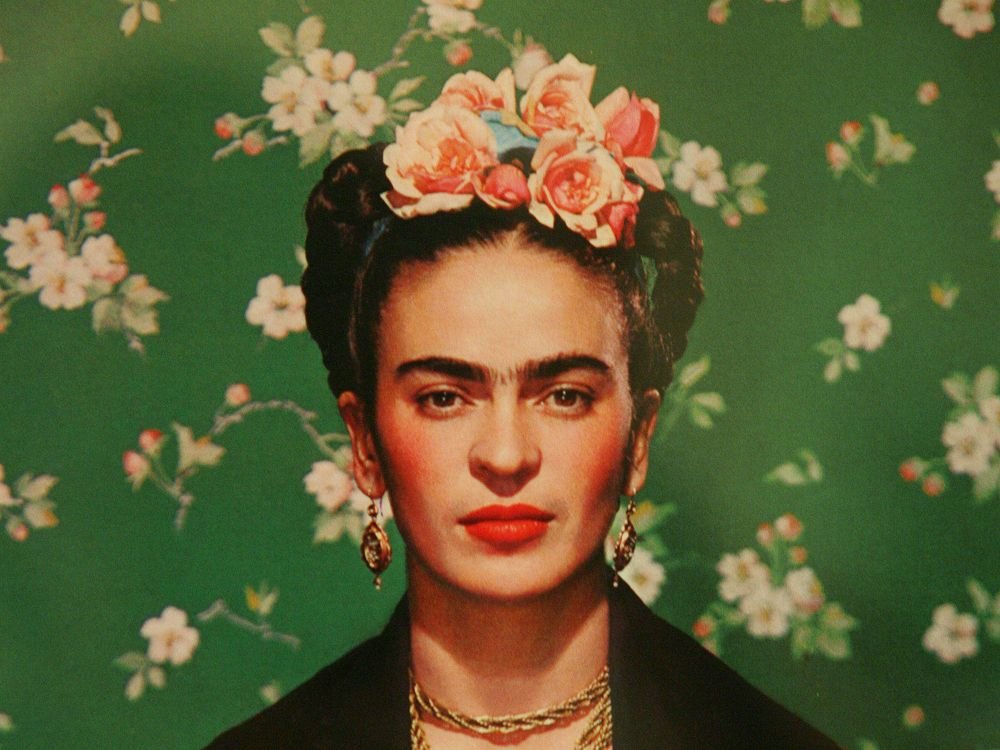With our performance of Frida on 10 July fast approaching, we caught up with Paul Edlin, composer of Frida, and Katie Bray, mezzo-soprano soloist, to get their thoughts on this piece and the artist herself.
The performance will take place at 7.30pm on the 10 July at the Octagon, Queen Mary University of London. Tickets are priced at £10/£5 and are available here on Eventbrite.
This challenging work, premiered by East London Music Group and Katie Bray at Oxford Festival of the Arts in 2019, is written for flute, clarinet, Magnetic Resonator Piano, string quartet, and mezzo-soprano soloist.
Katie Bray and Paul Edlin
ELMG: Is there anything about Frida Kahlo that particularly draws you to her as a character?
Katie Bray: I am drawn to her incredible resilience, in the face of such adversity. I am also fascinated by her use of language - her diary is so surreal, so detailed, so brutally honest - the language hits you right between the eyes.
ELMG: What do you feel are the particular challenges of portraying Frida, and what aspects of playing a character like this bring satisfaction?
KB: One of the biggest challenges of playing Frida is trying to make sense of her stream of consciousness style of writing. There are long sections of text which just pour out, like mad mutterings, and I want to find ways to make that seem natural, whilst also not shying away from the fact that some of it doesn’t make much sense to us. It was of course her diary, and I don’t suppose it was meant to make sense to anyone but Frida herself.
One of many satisfying aspects of playing Frida is the need to find such freedom and realness. She was untamed, and I love the challenge of finding that in myself too.
ELMG: Can you give some insight into Paul Edlin’s writing for the voice in this work - is it challenging to sing, or to learn?
Paul Edlin’s writing is very challenging for us all, without doubt, but I love the challenge of learning really complex music and trying to find the core of the character in amongst such complexity.
Paul also writes beautifully for the voice, and very well within my range, so there are some sections which are such a pleasure to sing, and really very beautiful indeed. Some of the romantic sections, where Frida speaks about Diego, are understood and interpreted so beautifully by Paul, and really are a delight to sing.
Frida Kahlo
ELMG: What is it about Frida Kahlo that particularly drew you to her as a character?
Paul Edlin: I grew up surrounded by art as my mother was a painter. In fact, she was a brilliant artist, once getting the Picture of the Year at the Royal Academy. She did a lot of surrealist work and that influenced me a lot. But she also had a very tough time, mostly due to my father, but also because of a terrible robbery. So I suppose I naturally related to the challenges Frida Kahlo faced, and I found her story as well as her art inspiring.
ELMG: Do you feel there were any particular challenges to portraying Frida in this medium?
PE: I love symbolism in both art and music, and I embedded a huge amount of symbolism in terms of ciphers and form, etc. This doesn't;always align with what we perceive as 'Mexican music', and I didn't want to try to create that. So the challenge was to portray Frida's personality and circumstances faithfully yet in a language that she would not have been familiar with.
ELMG: Frida Kahlo’s diary is extraordinary: extremely colourful and portraying a wide range of emotions, at times it is violent and shocking. Could you give some insight how the diary influenced your writing, both for the vocalist and the ensemble?
PE: Yes, the diary is exceptional, and it is visual as well as literary. You have to get a copy of the book to fully understand it. Yes, it covers so many emotions, and that typifies Frida's personality. My task was to make a coherent journey of a selection of diary entries, revealing the huge challenges she faced as a result of her accident and ill health, and of her life and loves. But her words are so compelling. For instance the opening words:
no moon, sun, diamond, hands –
fingertip, dot, ray, gauze, sea.
This is pure stream of consciousness. Or later:
I’d … give
sea
do
kiss
I love Diego and no one else
And finally:
I hope the
leaving is joyful – and I hope
never to return –
These are heaven for a composer to set because they are so direct, so succinct, yet so impactive. And the words are so beautiful to sing.
ELMG: This kind of atonal music can sometimes be challenging for audiences to understand - how would you like people to approach hearing a performance of this work, and what would you like them to take away from it?
It's funny, because my music falls between two groups, the extremely tough hard-edged. and the much more romantic world. I like music to be beautiful and dramatic, and I think that actually cuts through to listeners. I've never known anyone say they hated my music. In fact, I'm always surprised and pleased by how many people say they could relate to it.
I think that is because I write more instinctively, a bit like a jazz musician improvises with care to the music and an innate sense of well groomed abandon. Rachmaninov composed like this too, and I love his music. So when you listen, just let you mind be transported by the sounds you hear. All the formal designs and the symbolism just help give greater coherence and should not interfere with the emotion of the music.
Frida Kahlo




